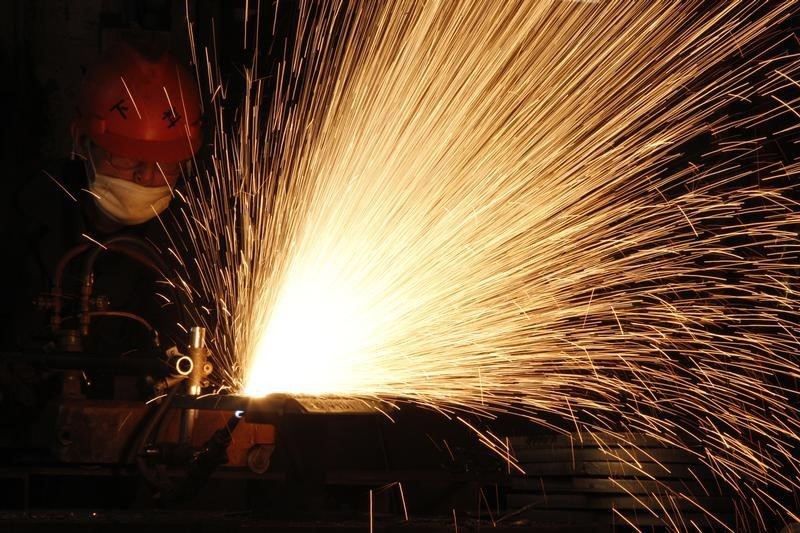By Maytaal Angel
LONDON (Reuters) - Britain will have £3.8 billion a year of business opportunities for steelmakers by 2030, according to an independent study commissioned by the government.
The British government, which has come under pressure to protect vulnerable industrial sectors from the effects of Brexit, also said it plans to use 3 million tonnes of UK steel in infrastructure projects in the next five years.
"Through our modern industrial strategy, the government has been clear that we will do everything we can to support our steel industry," the minister for climate change and industrial policy, Claire Perry, said in a statement.
The government last month launched an industrial strategy aimed at intervening in key sectors to tackle weak productivity and bolster businesses, hoping to counter any problems caused by the country's planned exit from the European Union.
Prime Minister Theresa May first flagged the plan in January, seven months after Britain voted to leave the EU, adopting a hands-on approach to business that had largely been abandoned by her predecessors.
UK Steel, an industry association, said: "This report shows once and for all that there can be a positive future here for our steel producers, if the right measures are put in place."
"The government has a vital role to play in delivering the right business environment and in maximising the opportunities for UK producers from its own purchase of steel."
Between September 2015 and March 2017, some 7,000 UK steel jobs were lost, about a quarter of the workforce. It is estimated that for every one steel job lost, three or four jobs are lost in related industries.
Heavy industries in Britain pay some of the highest energy costs and green taxes in the world, but the British government says it is working to combat these problems.
The government's industrial strategy targets life sciences, construction, artificial intelligence and the automotive industry, which have suffered from weak productivity since the 2008 financial crisis.
EU steel prices
